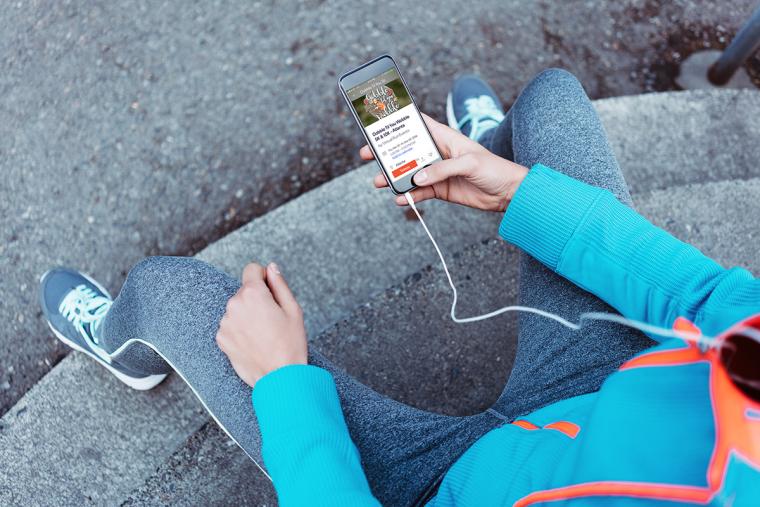
 Today’s Internet-dominated world is at the peak of evolution with smartphones gaining tremendous momentum. In the United States alone, more than 224 million people are smartphone users, making it one of the largest smartphone marketplaces in the world. If you’re not convinced, simply look around: it’s predicted that at least 75 percent of the people nearby right now own a smartphone.
Today’s Internet-dominated world is at the peak of evolution with smartphones gaining tremendous momentum. In the United States alone, more than 224 million people are smartphone users, making it one of the largest smartphone marketplaces in the world. If you’re not convinced, simply look around: it’s predicted that at least 75 percent of the people nearby right now own a smartphone.
This growing use of smartphones has prompted a significant rise in the number of mobile applications used by consumers. Over their years, the incredible capabilities of apps have evolved at expeditious speeds while accounting for 90 percent of time spent on a mobile device. And with more than four million applications available for download on both Apple and Android devices, these solutions are contributing heavily to an abundance of new technological advancements in a wide range of industries.
This is exceedingly evident in event planning for the sports industry. According to a recent study, it revealed a 45 percent growth in the need for event apps by 2020, and the percentage of attendees engaging with mobile apps for events is also predicted to increase by 56 percent this year.
This spike is directly correlated to the benefits delivered to event organizers and venue managers who choose to invest in event-specific mobile applications. As technology continues to advance, these handful solutions will soon be the most essential for professionals in the sports industry.
The benefits of mobile apps.
Before investing in a mobile application for an upcoming sports-related event, it’s vital to understand the benefits of how these tools can garner a strong ROI from a planning perspective as well as from the attendee’s experience.
• Simplifies registration and waiver forms: With a mobile app, the entire registration process can now be automated and simplified in the most secure way possible, which can improve attendee growth. In addition, many apps can also streamline the signing of waiver forms that are necessary for a sports-related event while keeping them organized as well as readily available
• Streamlines ticket process: The integration of ticketing with a secure in-app payment portal makes it more convenient for attendees to purchase and receive event tickets
• Provides easy check-in: Long check-in lines can hurt the attendee experience. Now, the whole check-in process can be digitized through the mobile application, providing an unrivaled easy-to-use solution for staff and helping detect unauthorized members to enhance event security
• Streamlines communication: Mobile apps can serve as a handy portal for various event information for both attendees and the event staff. In addition, mobile apps can also leverage a push notification functionality to help further streamline communication to attendees in real-time to boost audience satisfaction. For instance, if an outdoor event experiences a rain delay, event planners can easily communicate this information to all event attendees
• Boosts audience engagement through social media: The mobile app can be directly linked to various social media accounts such as Facebook and Twitter, so live updates can be posted on social media and be made available in the app itself to boost audience engagement
• In-app sponsor promotion: An event application can be used as another channel for sponsor promotion through push notifications and banner ads. Furthermore, a mobile application for events can be an effective lure for potential sponsors as the $201 billion in-app mobile advertising marketplace typically provides more holistic strategies to the marketing mix
• Enhances the attendee experience: An event planning mobile app can help provide the best possible spectator experience for the event. This includes, for instance, helping attendees find available seats, ordering food and beverage and purchasing branded merchandise
• Athlete performance technology: Some apps can even include features specifically for athletes or their coaches. This may be, for example, video analysis technology to determine athlete trends, strengths and weaknesses to help perfect performance. More specifically, an app for an event like a marathon could contain information like the race route, notes about rest stops and a link to an evaluation
• Event analytics: Detailed analytics reports of every aspect of an event app can be readily available, allowing event managers to monitor growth, attract new sponsors and attract potential new teams to future events.
App 101: What are my options?
When it comes to mobile apps, there are two main options that fit the needs of the majority of event planners:
Platform-based apps, which provide the skeleton of the mobile application but can be customized by the client. This is going to be the most cost-effective solution, ranging anywhere from a couple hundred dollars to $10,000.
A custom app is also an option. However, these options are typically more commonly used for larger, more complex events that draw in hundreds of thousands of spectators with event planners executing multiple events simultaneously. Custom apps are also very expensive, costing upwards of at least $100,000, and take a long time to develop.
Many readers may be organizers of smaller-scale events – and (in the interest of full disclosure, that’s the type of app our company specializes in). Having a smaller event doesn’t mean you can’t reap the benefits of a mobile app; it’s just not recommended that you go for a custom app.
In addition to being a more cost-effective and efficient solution, these platforms allow businesses to scale or make modifications easily during any stage of the process. Furthermore, the development phase of these applications have lower risks with minimal overhead since they have already been developed and tested. Utilizing a platform also provides a significant advantage for businesses as professional technical support is generally included as part of the service, which is more crucial for those where technical proficiency may be lacking.
However, using a platform-based solution does mean the application may visually resemble another app on the market since the design is not exclusive. Fortunately, marketplace options are becoming more advanced to ensure applications resemble a company’s brand more graphically while offering a feature-rich, scalable and high-performance solution.
The Planning Process.
There are many steps to consider when planning to incorporate a mobile app into an event:
• Determine app layout. Whether it’s custom or platform-based, establishing the layout of the app will help determine the development process and how long it will take to create.
• Establish a timeline. Apps, like many of facets of event planning, take time. The process involves various aspects of designing, testing and marketing. Given the lengthy process, it is always recommended to build in more time than needed in case of setbacks, so allocate at least three to six months for a platform-based solution. (Custom applications take even twice as long.)
• Plan for marketing. As with the design phase, marketing of the app has to start in advance of the event. When marketing your app, follow these rules:
- Tackle early adoption. Familiarizing users with your app early is the key to adoption, so start talking about it sooner rather than later. While we don’t suggest you share the event app before it’s built, you should share it early
- Communicate clearly. People absorb information in a variety of ways and sometimes need to be told more than once. This means persistence is key when explaining the value of an event app to prompt downloads. Include event app details in your email, articles, blog posts and on social media. Also, remember that different channels are needed for different people, so make sure to strategize messaging appropriately.
- On-site event app marketing. The benefits of apps are endless. They’re better for the environment, more accurate and easy to use. But making attendees accessible to a printed program is actively limiting the number of people who use the app. Experience a dramatic increase in app downloads by cutting out printing entirely, or only offering print materials upon request.
Join the Mobile App Revolution
Mobile apps may seem like a scary investment with many event organizers fearful of low download rates, technically challenged attendees or unclear ROI. But it’s time to understand the benefits and put those worries in the past. Instead of wasting time and money, start adding a mobile application to your event planning repertoire. You won’t regret it. SDM

